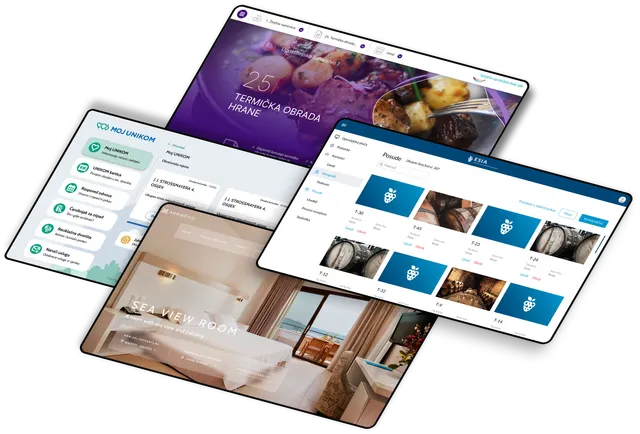
25+ Custom Manufacturing Software Statistics Showcasing Efficiency Gains and Cost Reductions
Key Custom Manufacturing Software StatisticsManufacturing ...

Author:
Ana Lozančić

Remote work refers to tasks performed outside the traditional office environment. This trend, which started during the COVID-19 pandemic, continues to grow, offering more flexibility to both employers and employees.
Working from home poses its own set of challenges, especially when it comes to the available tools and continued productivity. Some thrive and take advantage of the opportunity, while others struggle to adapt.
If you belong to the second category, don’t worry – you are not alone.
Before you can figure out how to work remotely, you need to figure out how to work.
How do you approach problems and prioritization? What tempo suits you best? When are you the most focused?
Learning about your work style can have a big impact on your effectiveness.
Many of us measure our productivity based on the number of tasks we've managed to complete. If they are unfinished by the end of the day, we feel guilty.
But we are not machines.
Working from home has created a lot of changes, we are glued to our screens while losing the opportunity to have spontaneous face-to-face conversations with colleagues.
A lot of screen time and no breaks will impact your productivity, so you should try and do the following:
Schedule regular breaks. Get away from your computer. You can become more productive by taking breaks.
Get outside or exercise. Your physical and emotional state can improve even with a short walk around the block.
Phone call instead of a Zoom meeting. Walk around the block while you talk.
Practice your mind to reduce stress and build focus. This can be especially helpful in high-stress environments.
Be patient with yourself. Transition to working from home can be challenging at the beginning, but you will get the hang of it.
Sitting for hours in front of a screen causes eye fatigue and a decrease in sharpness, focus, ability to concentrate, and can cause headaches, pain in the neck and shoulders. (Netivei Reshet)
Doing the basics to take care of yourself will make you a happier, healthier and more effective worker. Not only will you be more productive, but you’ll also prevent burnout that can come with stress.
When you work from home, you don't have a commute to work, your housemates become your office colleagues, and the kitchen your breakroom.
You may not be able to stick to your old routine, but you should still schedule your day.
Wake up on time. Allow yourself enough free time to prepare before the start of the workday.
Dress up. You don't have to wear a nice shirt, but doing the regular things you would do every morning can set you up for the day.
Schedule your day. Make a to-do list of what you will do and what your priorities are.
Make time for a break. Walk the dog or eat a home-cooked meal.
By planning your schedule, you will be able to see potential obstacles and problems that need to be solved.
First, prioritize tasks and allocate time for each. Of course, not everything will be done in a minute, but it is important to have a time frame.

Change your routine if you notice that productivity is falling or not increasing to a desired level.
Clear expectations are the foundation of productivity. It is essential to set reasonable goals.
When employees understand their roles through clear responsibilities, they experience less uncertainty and find it easier to stay focused on their tasks.
Start simple and be specific
Allow imperfection
Create clear goals
Support goals with incentives
Track, examine and adjust goals based on feedback
One of the biggest enemies to productivity is procrastination.
There's no denying that we've all procrastinated at some point, but how do we overcome that habit?
Make a clear plan of action
Remove distractions
Write by hand
Remove fear of failure
Break big initiatives into smaller tasks
Set deadlines
Finding the right balance between sharing what's needed and avoiding overwhelming details is key to clear and effective communication.
Regular check-in times to set goals and tasks; it's best once a week.
Don't hesitate to schedule a video call to discuss things.
Leave a message in the chat to let the team know you're going on a break so they don’t disturb you unless it's super urgent.
Let your manager or team know if you need help or support with something. It's not embarrassing to ask for help.
Tracking how much time you have invested in your work, allows you to know where you devote and invest most of your time.
It also allows superiors to monitor the progress of projects, ensuring that work is completed on time and within budget.
If the job doesn't require specific working hours, don't stress over how many hours you work.
Focus on monitoring the tasks and the deadlines. As long as they fulfill or surpass the job requirements, the actual hours worked shouldn't be a worry.
Using the right technology allows you to function effectively.
Tools such as Asana, Jira or Gauss Box facilitate collaboration among remote employees, helping them organize and prioritize tasks more efficiently.
Invest in a good workspace such as standing desk and ergonomic chair, and maybe more than one monitor.
You can also add a little touch to make workspace yours. Who doesn’t love a great desk plant?

Learning to work effectively from home can be difficult, especially if it's unexpected.
You don't have to apply all of these steps right away; instead, focus on what you can do today to move forward one step at a time.
By using these tips day-by-day you can transform your work-from-home experience. Whether you're working remotely for a while or long-term, you'll be able to do your best.

